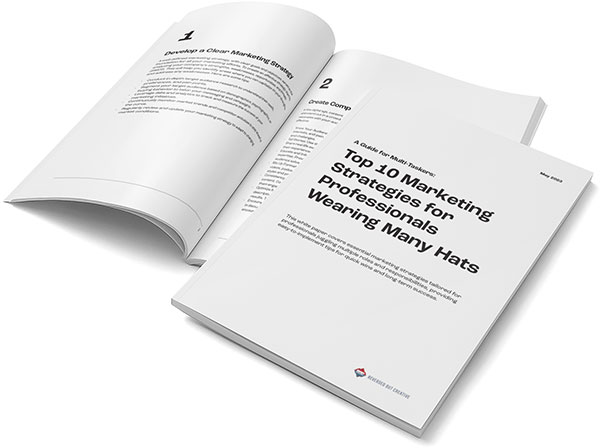
Does my website need to be ADA-compliant? Suppose you own a business or organization with a website and people visit your site in order to obtain information about or purchase your products or services. In that case, your site needs to comply with ADA regulations. Websites should be accessible to all individuals regardless of their ability or disability. The ADA is the principal civil rights statute for people with disabilities. Under Title III of the ADA, businesses and nonprofit service providers must make reasonable modifications in policies and procedures to permit access for all people, including those with disabilities.
In this guide, learn if your website needs to be ADA-compliant and what the ADA requires of your business.
Yes, it does.
The Americans with Disabilities Act (ADA) is a civil rights law that prohibits discrimination based on disability. It applies to all places of public accommodation, including websites that are part of those businesses.
Websites should be accessible to all individuals regardless of their ability or disability.
In the United States, the Americans with Disabilities Act (ADA) was signed into law in 1990, which requires all businesses and organizations to provide equal access to their goods and services. Websites should be no exception!
The ADA covers a wide range of conditions that may affect one’s ability to interact with others in various ways. These include: blindness/visual impairment; deafness/hard-of-hearing; autism spectrum disorder; cerebral palsy; diabetes; epilepsy or other seizure disorders; intellectual disability; learning disabilities and/or ADHD (attention deficit hyperactivity disorder); muscular dystrophy; multiple sclerosis or other degenerative brain diseases similar in nature; stroke, traumatic brain injury (TBI)/post-concussive syndrome.
The ADA is the principal civil rights statute for people with disabilities.
The ADA also prohibits discrimination based on disability in all programs, activities, and services offered by public entities. It applies to each of us – doctors, nurses, hospitals; restaurants and hotels; landlords who rent apartments or houses; theaters – any place we go to purchase something or do business.
However, what amounts to “reasonable” will vary from case to case. The law provides several factors for determining whether an accommodation is reasonable: best practices in the industry at issue; other relevant federal laws and regulations that require compliance with standards similar to or more stringent than those required by Title III (for example: Section 508); the resources available at that particular site; whether there are alternative ways of meeting both legitimate concerns raised by the organization as well as its legal obligations under Title III; what types of accommodations other customers without disabilities typically receive at that location or venue; how often customers without disabilities experience difficulties accessing such facilities due to structural barriers; whether making a change would be impracticable because it would produce significant economic hardship on small business owners who operate limited-service restaurants or retail stores catering primarily toward one sex or gender-based upon stereotypes about manners associated with certain genders (which might warrant a finding that allowing individuals into these locations would fundamentally alter their operations).
Legal action has already been taken against businesses where it was determined that their website was not compliant with ADA rules.
ADA compliance is not a suggestion, it’s a requirement. If you run any sort of business that has a physical presence, and if more than one person is present at that business, then ADA compliance applies to you.
This includes everything from the most basic retail store to your own website and digital presence. If you offer goods or services online (even if they’re free), then ADA compliance applies to your website as well.
The government has also made clear that they’re not just interested in large businesses when it comes to ADA rules—they want every business owner and operator on board. The law states: “The Americans with Disabilities Act requires all public entities…to ensure effective communication with individuals with disabilities.”
Web Content Accessibility Guidelines.
The Web Content Accessibility Guidelines (WCAG) 2.1 became effective on June 5, 2018. WCAG 2.1 builds upon WCAG 2.0 to ensure compliance with ADA regulations and laws by providing website owners with guidelines for ensuring that the content on their websites is accessible to all users, including those who have physical or mental disabilities. These include visual impairments (low vision, color blindness), hearing loss, physical limitations (mobility impairments), and cognitive limitations (dyslexia and language disorders).
The updated guidelines can be applied immediately when making changes to existing websites or content or planning new ones, even if a site hasn’t been built yet.
Conclusion
Keeping up with the latest web accessibility guidelines is important, but it’s not always easy. If you’re looking for ways to improve your website’s compliance with ADA standards or just want to ensure that it complies with other legal obligations, contact the experts at Reversed Out Creative today!
Contact Us
At Reversed Out Creative, we understand the challenges and opportunities presented by AI disruption. Our team of experts specializes in web design, SEO, graphic design, and digital marketing services. Reach out to us through our contact form to learn more about navigating the evolving job market and embracing the potential of AI. Together, let’s shape a future that combines human ingenuity with the power of AI.
Next Article: How To Use TikTok To Market Your Business
©2024 Reversed Out LLC. All rights reserved. Privacy Policy.


